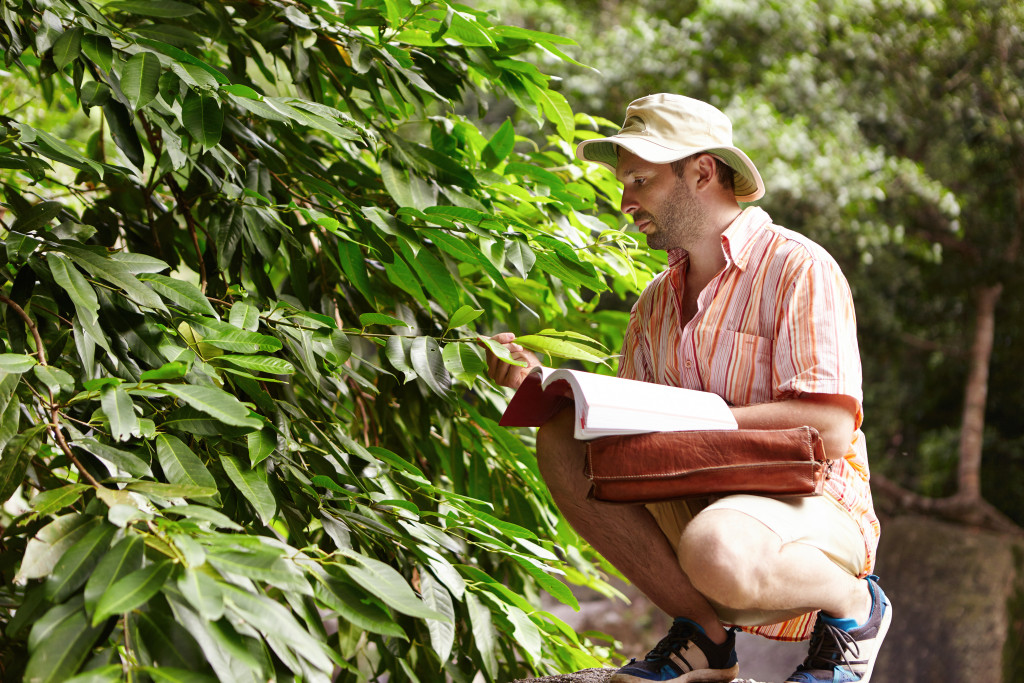- Environmental scientists conduct research and find solutions to environmental problems.
- Tree surgeons diagnose and treat tree diseases and need qualifications such as arboriculture and horticulture degrees.
- Park rangers manage and protect national parks and other natural sites.
- Foresters balance economic, social, and environmental considerations in managing forests.
- Wildlife biologists study animals and their habitats to understand behavior, genetics, population dynamics, etc.
If you love being out in nature and are passionate about making a difference in the environment, a career in a nature-related field may be an excellent fit for you. The good news is various career options are available that allow you to work with nature in different ways. This blog post will explore some of the top nature-related career options and what each entails.
Environmental Scientist
Environmental scientists are responsible for researching issues that affect the environment, such as pollution and climate change. They also work to find ways to eliminate or reduce these issues.
If you’re passionate about solving environmental problems, becoming an environmental scientist could be the perfect fit. Environmental scientists can work for government agencies, non-profit organizations, consulting companies, or private research institutions.
Tree Surgeon

Did you know that trees need medical care? As a tree surgeon, you would diagnose and treat tree-related diseases. It’s important to note that there are some vital qualifications to become a tree surgeon, such as:
- A degree in arboriculture, horticulture, forestry, or a related field
- Ability to read and understand tree ecology and physiology
- Knowledge of industry-standard equipment and tools
- A valid driver’s license for transportation to job sites
- Certification from an approved trade association.
Park Ranger
Park rangers are in charge of maintaining and protecting national parks and other natural sites. They are responsible for monitoring the environment, enforcing laws and regulations, and educating visitors about the nature around them. Becoming a park ranger could be a great career option if you enjoy camping, hiking, and interacting with people. Park rangers usually work for the government, but some may work for private parks or resorts.
Forester
Foresters manage and protect forests, working to balance economic, social, and environmental considerations. They oversee the planting, harvesting, and regeneration of forests and monitor the trees’ health.
If you enjoy spending time outdoors and want to make a difference in preserving these natural resources, becoming a forester could be an excellent fit. Foresters can work for the government, private companies, or non-profit organizations.
Wildlife Biologist
Wildlife biologists study animals and their habitats, working to understand the behavior, genetics, and population dynamics of different species. They may also work to protect endangered species or manage wildlife populations.
If you have a passion for animals and want to research their behavior and ecology, becoming a wildlife biologist could be a great career path. Wildlife biologists can work for government agencies, non-profit organizations, or research institutions.
Ecotourism Guide
Ecotourism guides lead tourists on outdoor adventures focusing on environmental education and conservation. They may lead hiking or kayaking trips, teach visitors about local wildlife, or educate tourists on sustainability practices.
If you enjoy sharing your love of nature with others and want to make a difference in promoting sustainable tourism, becoming an ecotourism guide could be a great career option. Ecotourism guides can work for tour companies, resorts, or government agencies.
Tips for Finding the Right Career Path
Now that you know about some of the top nature-related career choices, you must reflect on which one is right for you. Here are a few tips to help you find the right fit:
Identify Your Interests
First, consider your interests. Ask yourself questions such as: What do you enjoy doing? What are you passionate about? Doing this will help narrow down the list of potential career paths so you can focus on the ones that best fit your passions and interests.
Get Experience
Getting experience in a particular field is critical to finding success in a career. Consider volunteer opportunities or internships that will help you gain experience and learn more about the area you are interested in pursuing.
Do Research

Research is vital when making an informed decision about which career path to pursue. Read books, attend webinars, or speak with professionals in the field to better understand what the job entails and if it is a good fit for you.
Make Connections
Networking can be invaluable when finding a job in your chosen field. Attend events, join professional groups, or use social media to meet people already working in the industry. They can provide insight into the career path and help you make the right decision.
The Bottomline
Whether you’re interested in conserving wildlife, working to eliminate pollution, or educating others about the environment, many nature-related careers exist to explore. These are just a few examples of the many career options available, and the list continues to grow as the demand for sustainability increases. No matter your interests or passions, there is likely a nature-related career that is perfect for you!
